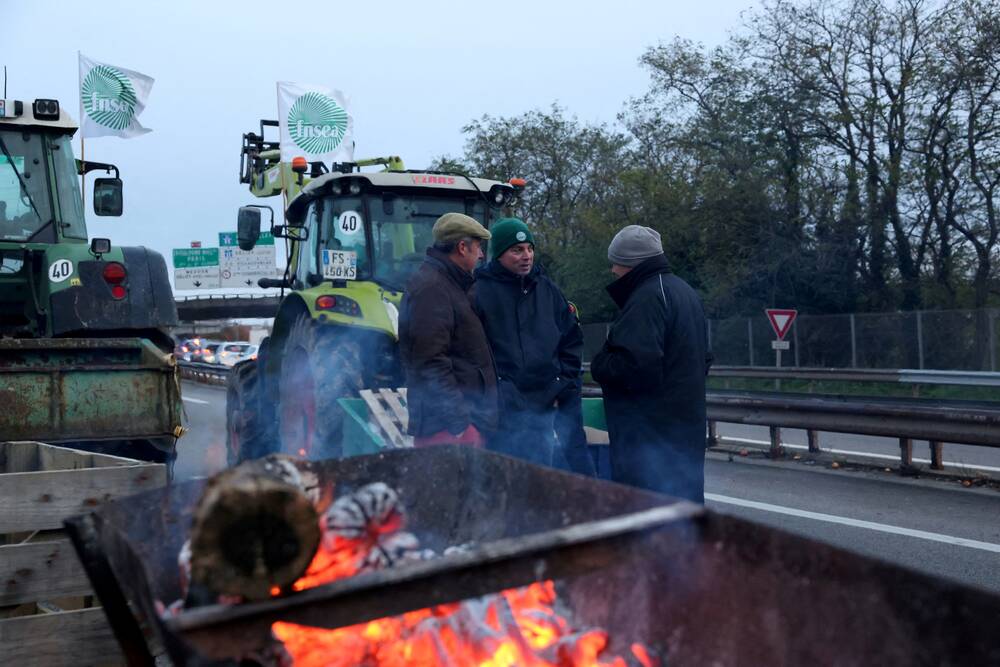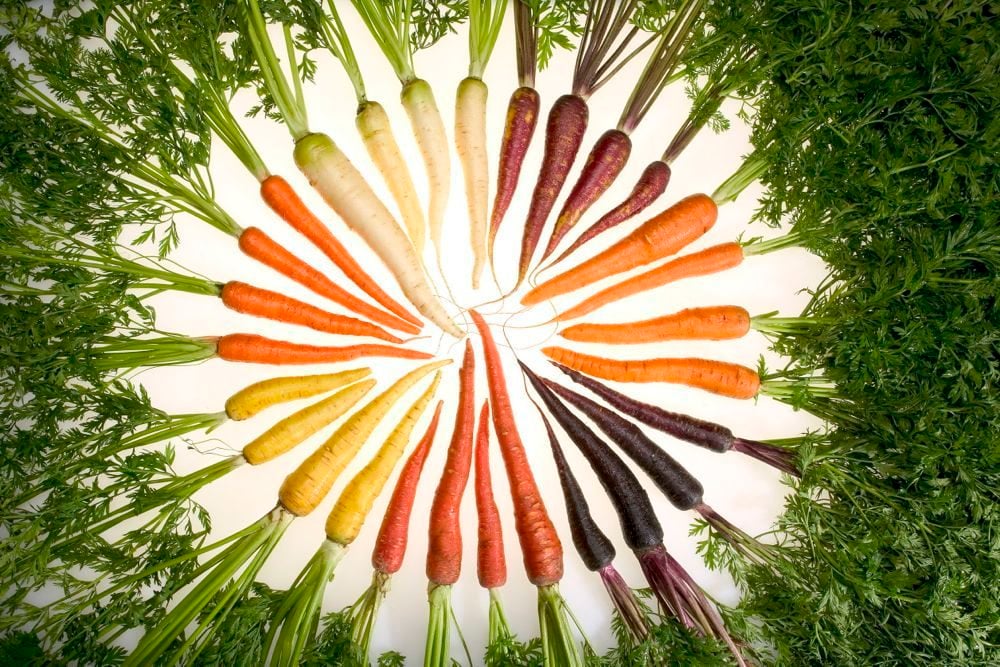French farmers back on the streets as Mercosur talks fuel discontent

A push by the European Union and South America’s Mercosur bloc to conclude long-running trade negotiations by the end of the year has rekindled anger among French farmers.
Similar frustration was voiced by farmers across Europe last winter after a surge in imports from Ukraine following Russia’s invasion.
However, the mood in France has soured further, after rain-hit harvests, livestock disease outbreaks and a parliamentary election that delayed measures promised to defuse the previous protests, which saw farmers block highways for weeks.
Read Also


Carrots linked to one US death, 39 cases of illness from E. coli, CDC says
One person has died and at least 39 others made ill by E. coli infections linked to fresh carrots sold by several large grocery retailers in 18 states, the U.S. Centers for Disease Control and Prevention said on Sunday.
“We have the same demands as in January, nothing has changed,” Armelle Fraiture said on her dairy farm north of Paris. “We must make the government understand that enough is enough.”
As farmers face cheaper imports, burdensome regulations and meagre incomes, a Mercosur deal would represent a bitter “cherry on the cake”, Arnaud Rousseau, head of France’s main farmers’ union, the FNSEA, told BFM TV on Sunday.
Tens of thousands of farms in France, the EU’s biggest agricultural producer, were in financial trouble, he said.
French farmers fear a Mercosur accord will bring more beef, chicken, sugar and maize from Brazil and Argentina, countries they say use pesticides on crops and growth antibiotics in livestock that are outlawed in Europe.
The agreement would also give EU farmers increased access to South American markets which could boost exports of products such as wine, cheese, milk powder and olive oil.
Farmers will hold rallies on Monday and Tuesday, mostly in front of government buildings, as part of protests planned until mid-December, Rousseau said.
Ahead of the nationwide action, a small group of farmers with tractors blocked one side of a highway near Paris on Sunday evening, displaying slogans like “Let’s not import the agriculture that we don’t want.”
President Emmanuel Macron on Sunday reiterated his opposition to a deal with Mercosur as proposed.
But with France lacking EU allies in the Mercosur talks, and rural grievances running deep, the authorities may struggle to placate the farmers.
“We know we’re going out (to protest), but we don’t know when we’re coming back,” Fraiture said.
Affected commodities
Under the agreement, the EU will allow 99,000 metric tons of beef, including 55 per cent of “fresh”, high quality beef, and 45 per cent of “frozen” beef, to be phased-in over five years, with a 7.5 per cent duty.
This represents 1.2 per cent of the overall EU beef consumption of 8 million tons per year.
The EU currently imports about 200,000 tons of beef every year from Mercosur countries.
That total includes the so-called Hilton quota which allows Brazil and Argentina to each export up to 10,000 tonnes of beef, and 29,500 tonnes of prime beef cuts to the EU each year. The current 20 per cent duty on that quota is due to be removed.
The free trade agreement would allow duty-free imports of 180,000 tons of poultry meat per year from Mercosur countries.
This represents 1.4 per cent of overall EU poultry consumption of 12.6 million tons forecast in 2024, EU data showed.
The four Mercosur countries together are already the EU’s leading suppliers of chicken meat. When taken separately, Brazil – the world’s largest poultry producer – is number one, followed by Ukraine.
The additional 180,000 tons represent a 20 per cent increase in total quota volumes, which would bring the share of imports in EU consumption of poultry meat to 10 per cent, French poultry producers said.
Under the agreement, Brazil will see the tariff removed on the existing quota for 180,000 tons of sugar for refining.
Paraguay would be granted a new duty-free quota of 10,000 tons.
The agreed amounts cover a volume accounting for one per cent of EU sugar consumption, which is expected at 17.7 million tons in 2024, against a production of 16.6 million tons, EU data showed.
Mercosur countries would be granted two different tariff-rate quotas for a total of 650,000 tons, or 8.2 million hectolitres of ethanol.
The first one, of 450,000 tons, would be duty-free for biochemical uses while the second, of 200,000 tons would be at a reduced levy and for all uses, including fuel.
The total represents approximately 15 per cent of EU production.
Quota of 1,000,000 tons of duty-free maize and sorghum imports from Mercosur countries to be phased in over five years.
However, the quota would not change the current situation since maize imports are already duty free. It would only make a difference if world prices were to collapse, triggering automatic import duties on other imports.
Brazil was the second-largest maize supplier to the EU after Ukraine, with 2.9 million tonnes imported in the EU last season.
The agreement will also reduce or eliminate duties that Mercosur countries currently impose on exports to the EU of products such as soybean products to be used in animal feed.
Mercosur is already the largest soybean and soybean product supplier of the EU.
— Reporting by Sybille de La Hamaide, Manuel Ausloos, Gus Trompiz, Marco Trujillo and Stephanie Lecocq
Source: Farmtario.com

